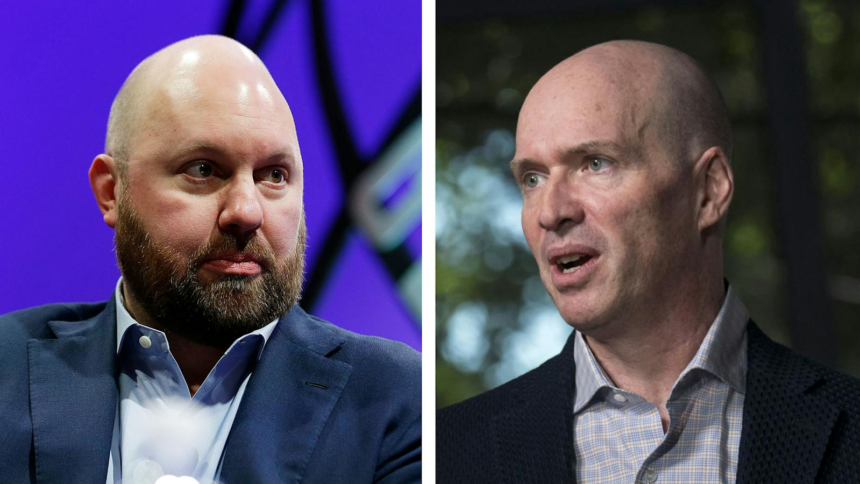- Andreessen controversially labeled federal student debt forgiveness a “bailout.”
- A16z co-founder Horowitz countered college no longer warrants outrageous tuition with ubiquitous knowledge accessibility.
- The tech titans spotlight swelling student debts absent wage growth.
No student loan forgiveness
Venture capitalist Marc Andreessen controversially dubbed federal student loan forgiveness a “bailout” on a recent podcast, drawing parallels to government-backed corporate rescues during crises.
Discussing higher education policy with a16z co-founder Ben Horowitz, Andreessen criticized debt erasure as unfair taxpayer burdens benefiting irresponsible borrowing.
“You now have direct bailouts…other taxpayers, other people, are going To foot the bill for it,” stated Andreessen, invoking bailouts multiple times.
However, legal definitions restrict bailouts specifically to entities facing financial ruin or bankruptcy, unlike education loan recipients.

College not worth the money
Andreessen’s firm a16z directly benefited from regulators preventing mass deposit defaults at troubled Silicon Valley Bank, a major customer and investor where user funds exceeded federal insurance caps.
Nonetheless, Andreessen persisted in framing loan forgiveness recipients as reckless subprime cases rather than addressing systemic issues.
Responding, Horowitz argued the “real problem” is many degrees no longer provide career prospects warranting outrageous tuition prices.
“College is not worth the money,” he summarized.

Six-figure student debts are antiquated
Considering ubiquitous knowledge accessibility from smartphones, Horowitz questioned why credentials warrant six-figure student debts.
He views universities increasingly running “a scam” on expectations, necessitating much cheaper access to skills.
While starkly worded, the tech titans raise underlying issues on student debt swelling without wage growth.
But branding relief a bailout belies far more complex dynamics than corporate handouts.









